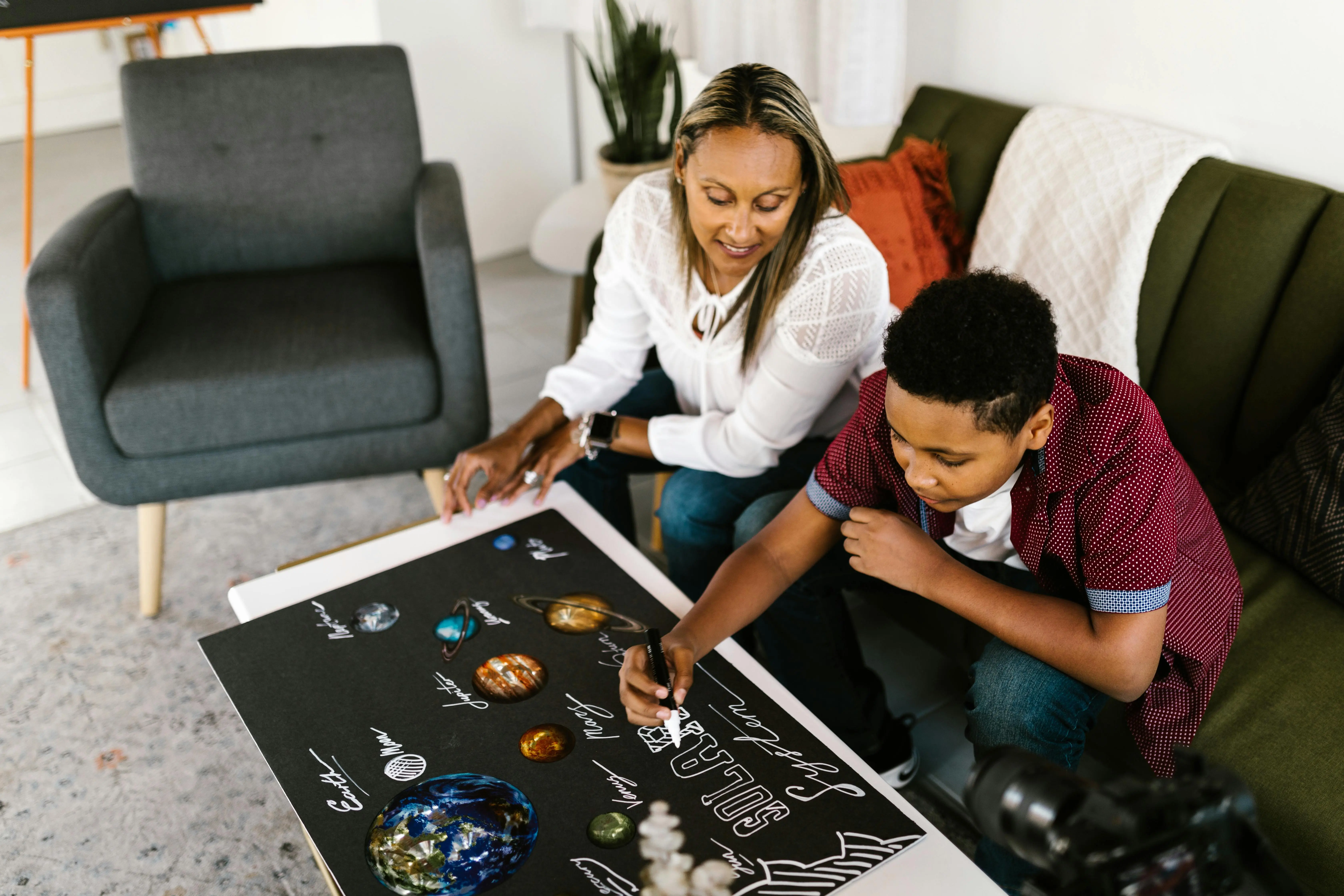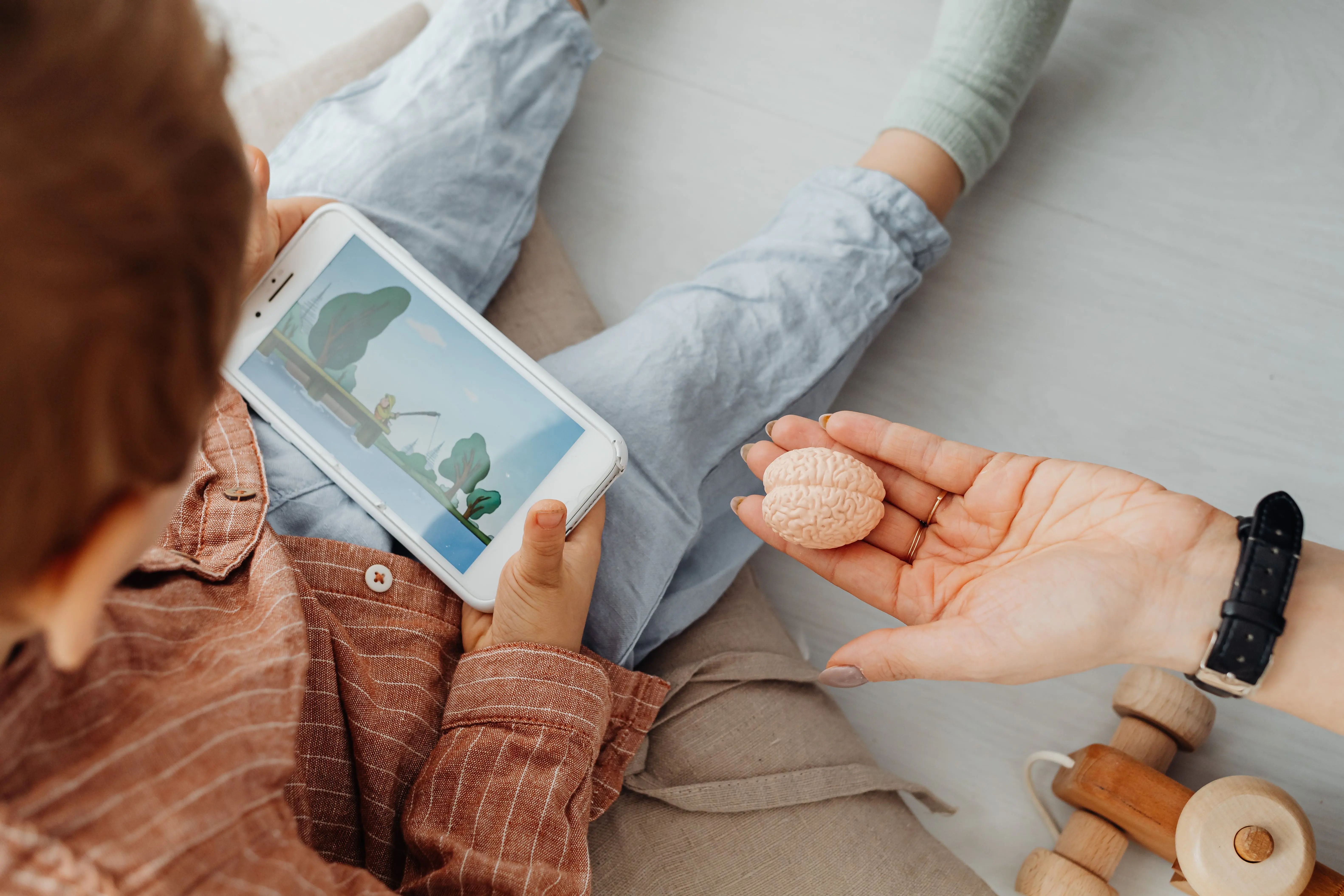ADHD and relationships
July 16, 2025

ADHD is a condition that affects the development and function of the brain, which in turn can affect behaviour, thoughts and emotions. Consequently, having ADHD can impact our relationships and how we interact with others.
In this article, we’ll explore the effects that ADHD may have on close personal relationships, and some tips to help manage them.
Disorganization
Some of the inattentive-type symptoms of ADHD include being forgetful in daily activities, and having difficulty organizing tasks and activities.
Someone with ADHD who is affected by difficulty organizing may find it challenging to keep their space clean and organized. This may lead to conflict in relationships due to different expectations about standards of cleanliness or organization.
In a scientific study analysing the interpersonal experiences of adults with ADHD, one participant said:
“I’ve never been able to keep a space not messy … My relationships with people are stunted because I feel like if no one can ever visit me, I’m not going to have as deep of relationships as I would have.”
To help manage this, a nightly routine of ‘what doesn’t belong’ may come in handy, by completing a quick pick-up around the space and making sure things are in order and back where they belong.
Disorganization may also lead to some relationship issues if the affected individual finds it challenging to plan and organize things like catch-ups or dates, to build or maintain connection with a friend or partner. In this case, it may be helpful to manage using a combination of planning and spontaneity.
Write down a bunch of activities you’d like to do together on strips of paper, and keep them in a jar. Every time you want to catch up, one of these strips is pulled out, and you take turns leading the activity. This helps remove the major decision from the planning process, and alleviates some of the mental work that people with ADHD may struggle with.
Forgetfulness
People who struggle with forgetfulness because of ADHD may find it difficult to remember where they’ve put their belongings, or struggle to remember certain dates or events.
Using a shared calendar such as Google Calendar, that everyone in the relationship can see and edit, can help with remembering important events or dates. These tools are accessible from multiple devices, so you can check dates from wherever you are. It may also help to schedule regular events in a systematic way, such as always on the 15th of the month, or always on saturdays.
Confusion and miscommunication about where an object lives or was last seen can sometimes be a point of conflict between people. This is especially evident when you’re trying to run out of the house, as not being able to find something you need can be stressful, which might lead to tension when trying to communicate with others.
Particularly for important or frequently-used belongings such as keys or wallets, it may be helpful to purchase a tracking device that you can connect to a phone or other wireless device, so that they’re easy to locate, saving you and others from a stressful situation.
The mental load
Sometimes people close to or in a relationship with someone with ADHD can feel like they’re carrying a larger mental load, because it may be necessary for them to help the other person remember or organize things. Past research has found that partners of people with ADHD may feel resentful or overwhelmed towards their partner because of the unequal distribution of work and emotional support.
If this is the case, it’s important to check-in often about how you’re both feeling, and what you can each do to help even the load. It’s important to be empathetic to the other person’s feelings, and to make sure that they feel supported in sharing them and in finding a solution together.
To help alleviate this, a shared roster for tasks or activities you’re both responsible for may be useful, as well as setting reminders on your phones through a shared calendar system. Having an open-minded monthly or weekly discussion about what’s working and what’s not may also be helpful to make sure you’re both on the same page about feelings and expectations.
Impulsivity
Some people with ADHD experience feeling ‘on-the-go’ all the time, and may feel restless and unable to sit still. These feelings may lead to spontaneous behavior, or acting without thinking through what is involved or the consequences thoroughly.
In a relationship, this may look like making decisions without consulting the other person. This may cause interpersonal issues, particularly when the situation involves investments of money or time. The other person may feel upset that they weren’t aware of the decision, or weren’t able to have any input in the outcome.
A quick resolution for this might be the ‘morning minute’ – having a short check-in each morning over breakfast or before you go to work to chat about any decisions that have come up recently and that you think the other person would like to weigh in on. This could include anything from what you should have for dinner, to when to take your next vacation.
The important thing to note is that what may not feel like a big decision to one person could feel major to another, and that’s why these conversations are critical in making sure you’re both on the same page.
Interruption
ADHD can be associated with talking loudly or excessively, or interrupting others when they’re talking. Although it usually isn’t meant to be malicious, for some people it can feel like they’re not being heard, or they’re not able to have the level of input they’d like in the conversation.
Particularly for important discussions, using a ‘talking teddy’ might assist in helping both parties share equally. The person who is holding the teddy (or other object – it can be anything) gets to talk. During this time, the other(s) are practicing active listening, making sure that they’re listening to understand and not listening to reply straight away.
It may be useful for everyone in the conversation to have a pen and paper next to them so that if they think of a reply whilst the other is talking, they can write it down so they don’t forget, rather than blurting it out.
Intrusion
For adolescents and adults with ADHD, it is not uncommon to feel the urge to join in on the activities of others. Sometimes, this can be unsettling, especially if they’re trying to have some time alone or with other people.
When you’re personally close with someone, it can be hard to be apart from them, but ultimately it’s important that everyone in the relationship feels like they have time to do their own thing.
The key to managing this is clear communication – making sure you each know when time alone or with others is needed, and respecting those boundaries. Having separate hobbies that you can enjoy independently might also help create some healthy separation.
Distraction and Inattention
Hallmark symptoms of ADHD include getting easily distracted and having difficulty maintaining attention for extended periods of time. In fact, researchers are also uncovering how ADHD can overlap with other conditions, such as ADHD and POTS, which can further complicate daily functioning and relationships.
Because of the way the ADHD brain works, ADHDers may find that their attention changes over the course of a relationship. In the early stages, the relationship is new and exciting, which might mean they will feel really attentive to and interested in their new friend/partner. However, as time goes on, this shiny feeling wears off, and people with ADHD may struggle to maintain that same level of attention towards the other person.
A study participant explained that “when it comes to relationships I don’t pay as much attention to them as I should. I kind of get stuck in my own head … So, I kind of forget to contact people.”
Obviously, this can feel upsetting and disheartening to both parties. Regular points of connection, such as special dates, as well as low-key routines you can share together like talking about your day when you get home, or making dinner together, can help maintain the bond.
Intentional focus on each other or activities you’re doing together is also really important to avoid opportunities for distraction, and to be sure nobody feels dismissed. Putting away phones when you’re hanging out, or maintaining eye contact during a conversation, can go a long way in making people feel appropriately engaged with each other.
How ADHD can positively contribute to relationships
So far, we’ve talked a lot about how some of the symptoms of ADHD might lead to conflict and how to resolve these issues. However, ADHD can also have some positive benefits within a relationship.
Spontaneity and Creativity
We mentioned earlier that people with ADHD can sometimes be spontaneous. ADHDers are often known for thinking outside of the box, particularly because they’ve had to learn to navigate a world that wasn’t built for them, in a way that works for their brains.
This can lead to developing some creative and interesting date or activity ideas, hobbies, and interests, which they might choose to share with those close to them. Those who share relationships with ADHDers might be exposed to new or exciting opportunities they wouldn’t have experienced otherwise.
Resilience
Because their condition makes it harder for them to maintain focus or attention towards a goal, those with ADHD may have had a lot of practice working through a problem until they achieve success or completion.
This experience may equip ADHDers with a certain level of mental and emotional strength, which might help them to persist or adapt when the going gets tough. In a relationship, people with ADHD might have a natural inclination towards solving a conflict or problem, rather than giving up when things get hard straight away, because of this experience.
More perceptive
Being easily distracted, whilst annoying at times, might also help people with ADHD notice things that neurotypical people might not. They may latch on to small details about the people they’re close to, which might show up in meaningful ways.
They might center dates or experiences around personal details that most people would consider imperceptible or unimportant. They might also notice small changes in mood and behavior, and act accordingly to help out those close to them. It’s the little things that can really matter!
If you’d like to learn more about how ADHD can affect some people for the better, our article ‘The benefits of having ADHD’ further describes some traits and positive perks that people with ADHD may experience.
%2520(1).png)
ADHD doesn’t come without challenges, including for those close to people affected by the condition. We hope this article has enlightened you about how to manage the effects of ADHD on relationships, as well as the positive impacts ADHD can have on relationships.
If you think someone else could benefit from reading this article, please share it with them! We’d love for our resources to reach those who need them.
Resources
- Ginapp CM, Greenberg NR, Macdonald-Gagnon G, Angarita GA, Bold KW, Potenza MN. The experiences of adults with ADHD in interpersonal relationships and online communities: A qualitative study. SSM Qual Res Health. 2023 Jun;3:100223. doi: 10.1016/j.ssmqr.2023.100223.
- Rokeach A, Wiener J. The Romantic Relationships of Adolescents With ADHD. J Atten Disord. 2018 Jan;22(1):35–45. doi: 10.1177/1087054714538660.
This is a div block with a Webflow interaction that will be triggered when the heading is in the view.










.jpg)





.png)

